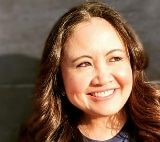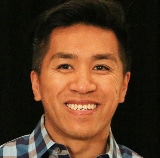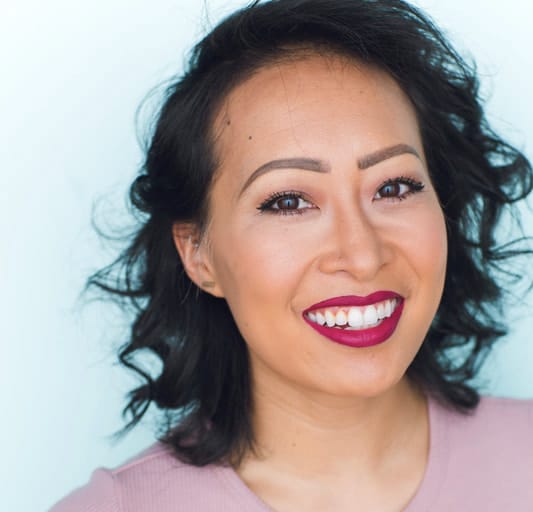DCPA NEWS CENTER
Enjoy the best stories and perspectives from the theatre world today.
Enjoy the best stories and perspectives from the theatre world today.
 EDITOR’S NOTE: Miss Saigon, inspired by the opera Madame Butterfly, tells one very specific story of the Viêt Nam War. It does not attempt to convey the breadth of the Asian American experience then or since. The DCPA NewsCenter has compiled a series of real-life stories of Asian Americans from vastly different backgrounds and countries of origin whose stories are both dramatic and dramatically different. Please note that we have chosen to honor the authentic spellings for Viêt Nam and Sài Gòn, respectively.
EDITOR’S NOTE: Miss Saigon, inspired by the opera Madame Butterfly, tells one very specific story of the Viêt Nam War. It does not attempt to convey the breadth of the Asian American experience then or since. The DCPA NewsCenter has compiled a series of real-life stories of Asian Americans from vastly different backgrounds and countries of origin whose stories are both dramatic and dramatically different. Please note that we have chosen to honor the authentic spellings for Viêt Nam and Sài Gòn, respectively.
Lê came to Colorado through the mass evacuation of an estimated 25,000 Viêtnamese babies for adoption by families in the United States and around the world from 1965-75.
Many of those babies had no records whatsoever. Lê was one of them.
“From 1965 on, there was an ongoing need to get kids out of Viêt Nam,” said Lê, who was starving and weighed less than 6 pounds when she was airlifted out of the chaos in 1973, still two years before the fall of Sài Gòn.
Lê has been told she was about 3 months old when she was sent to Loveland, Colorado, but who really knows? “The doctors assessed where I was at developmentally,” she said, “and that’s what they guessed.” For thousands of babies, pretty much all they could do was guess.
Lê arrived in Loveland with other orphans through a Boulder-based adoption agency called Friends of the Children of Viêt Nam [FCVN], which was licensed by the Colorado Department of Social Services and contracted with the Viêtnamese government.
Lê now knows she is ethnically Viêtnamese, Cambodian and Chinese. But as an American adoptee, she didn’t grow up with any of those cultures and traditions. So, in many ways, she feels neither Asian nor fully American. Perhaps that’s what moved the Littleton educator, dance coach, and mother of three to title her online journal, “Speaking from the Margin.”
“A huge part of being an adoptee,” she said, “is that you are always looking for where you belong.”
Lê holds four degrees from the University of Denver, including a Ph.D. in Curriculum and Instruction with an emphasis in Culturally Responsive Pedagogy. She is a guest speaker on qualitative research methods, diversity in the classroom and topics related to Viêt Nam’s orphans of war. She grew up in Albuquerque and has lived in Littleton for the past 15 years. But in many ways, she is still looking for home.
“I’m kind of a fraud because when you are not really Asian and you are not really American, you become an interloper in many different ways.”
Her lifetime search for her identity has taken some surprising twists and turns, including a disappointing move to Viêt Nam at age 23. In 2015, when she became one of the very few evacuated Viêtnamese to find her birth family through DNA testing, she officially took her Vietnamese family’s surname: Lê.
“It’s the one thing I have in my life that makes me Asian in some way, shape or form,” she said. “I mean, I’m kind of a fraud because when you are not really Asian and you are not really American, you become an interloper in many different ways. I don’t know my birthdate. Everything else has been given to me. So by self-selecting my name, that was me in some way saying, ‘This is actually one real thing in my life.’ ”

Joie N. Lê
Meeting her biological father changed Lê’s entire outlook – and direction. “By finding him, I thought about what I was doing with my life and what I wanted to do,” said Lê, whose many lives have included coaching championship dance teams and working with at-risk students. “I thought, I was ultimately a dancer before I was anything else. So I opened a dance studio.”
Lê Studio 45, located off South Chatfield Avenue and Kipling Parkway in Ken Caryl, is a community-based studio with a focus on mind, body and spirit. It’s a place where people can dance, do yoga, meditate or take fitness classes. No matter what they can pay.
Lê flipped the script by creating a business model where those who can afford to pay a base rate do so. Others can elect to purchase memberships where a portion goes to help people who can’t afford it, and a portion goes to a non-profit of their choice.
“Understanding the struggle that others face is what helped me design a space that supports communities at home in Colorado or abroad,” she said.
Here are more excerpts from John Moore’s conversation with Joie N. Lê:
“There were 25,000 war orphans who ultimately made it out of Viêt Nam. But very few of us have ever found their biological families.”
John Moore: I’m still having trouble wrapping my head around this idea of not ever knowing your own birthday.
Joie N. Lê: I lecture on the Viêt Nam war to high-school students, and they can’t wrap their head around it, either. When I met my biological family, I asked them, and they had no idea.
John Moore: You hear about people choosing their own family. Have you ever thought about choosing your own birthday?
Joie N. Lê: No. The date I was assigned is under the Leo sign, so that was good. I can own that.
John Moore: What do you know about your birth family?
Joie N. Lê: First of all, there are so many orphans of war. There were 25,000 of us who ultimately made it out of Viêt Nam. But very few of us have ever found their biological families. We could probably count how many that I know of.
John Moore: So let’s count them.
Joie N. Lê: There are maybe 10 that I know of out of 25,000.
John Moore: And you are one of them.
Joie N. Lê: I am one of them.
John Moore: How did that happen?
Joie N. Lê: Through DNA testing. It turns out that quite a few Facebook friends have ended up being my cousins. But most adoptees are still looking for their biological families.
John Moore: What did you find about your birth mother?
Joie N. Lê: Actually, I didn’t find anything out because I found my father, not my mother. And when I found my father, he was 94 at the time. He knew who I was, but most of what I have learned about my story has been told to me by my biological brothers, based on what they remember. I don’t know where my mother is, so there are still missing pieces.
John Moore: Where were all of these orphaned kids coming from?
Joie N. Lê: The reasons for putting kids up for adoption vary from pure poverty to having mixed-raced children to safety. Many women thought their children were going to come back.
John Moore: Colorado was one of the foremost states to welcome adoptees.
Joie N. Lê: Friends of the Children of Viêt Nam came out of Loveland and Boulder, and a lot of adoptees still live here because Colorado happened to be a huge hub.
“A lot of my friends, in retrospect, probably would have been happy to have been left in Viêt Nam.”
John Moore: How did your adoption happen?
Joie N. Lê: My adoption went through pretty quickly. My parents had put the paperwork through. And, interestingly enough, they lived in Loveland at the time.
John Moore: Was that the right home for you?
Joie N. Lê: Yes. It’s a lot about luck, and I was really lucky. I have a really great adoptive family. They never saw me as their adopted child. But there were a lot of people who never should have adopted children. A lot of my friends had just as much trauma here as they did there, and in retrospect, they probably would have been happy to have been left in Viêt Nam.
John Moore: Were you ever made to feel different?
Joie N. Lê: I never felt different within the family. It was society that made me feel different. We were a middle-class, well-educated family. My mother was a stay-at-home-mom at first, but she was ultimately an educator as well. My father was a computer engineer.
John Moore: But you grew up in New Mexico.
Joie N. Lê: Yes, my father got transferred to Digital from Hewlett-Packard. So I actually grew up in Albuquerque until I moved to Viêt Nam when I was about 23.
John Moore: I am fascinated that you chose to move to Viêt Nam at 23. How did that happen?
Joie N. Lê: Well it actually happened under the premise of a student exchange. After I graduated from high school in New Mexico, it was really hard for me to find a place. My parents had gotten divorced and I had defined myself by a family that disintegrated. As a result, I failed miserably after high school. I was a good student but I dropped out of at least five colleges.
John Moore: It’s also fascinating to me that a person with four advanced degrees dropped out of five colleges.
Joie N. Lê: I was just so stuck and I didn’t know where to be. But then, in 1995, President Clinton eliminated the trade embargo, and that really opened up Viêt Nam for people to come in and start looking not only for family or prisoners of warbut also to come back and live. There was a new, student-exchange program, and just I sort of tagged along.
John Moore: How was it for you to be there?
Joie N. Lê: Well, you build up your whole life of what Viêt Nam is and you think, ‘I’m going to finally reconnect with this culture.’ But then I got there, and they hated me.
John Moore: They hated you?
Joie N. Lê: They hated me. But context is everything. I was up in Northern Hanoi, and up until that time , Hanoi was mostly shuttered from the world. You have a country that is so old and they have been fighting forever. So they were just saying, “We’re open, but we have limitations.” Nowadays, it’s very welcoming and the past seems to be in the past.

John Moore: But why weren’t you welcomed there? Because you didn’t grow up there?
Joie N. Lê: Part of it was being Cambodian, and there was a Cambodian-Viêt Nam war just after the Viêt Nam War. So that was another issue. You think you can just go there and be this American – and you really can’t. Also being darker was a strike against me. Also being a woman. Also being an American citizen. I had all these strikes against me. I felt a lot of harassment, so I left after four months.
John Moore: So you had to go somewhere other than Hanoi. But you hadn’t lived in Colorado all that long as a kid. Why did you choose to move back here?
Joie N. Lê: I felt like I didn’t have a place anywhere, so I just came back to Colorado. The only person I knew here at the time was my brother and he said, “Hey, you should come live here.” I was really close to him, so I said OK. The University of Denver was literally down the street from where I lived. So three weeks later, I was back in school.
John Moore: And now you have a bachelor’s degree in English literature and international Studies; a master’s degree in English in non-fiction, creative writing; a master’s degree in education in Curriculum and Instruction; and a PhD in Curriculum and Instruction.
Joie N. Lê: All from the University of Denver.
John Moore: At what point did you feel like Colorado was where you really belonged? Because all these years later, you’re still here.
Joie N. Lê: I’m still here because it’s a relatively good state to be in. It’s just been easy. I think it would be nice if I were in a place that is more diverse but I am just here – and it’s OK to be here.
“People were so against the Viêt Nam war and they wanted someone to blame, and growing up, I was often that target.”
John Moore: Have your children been ‘otherized’ here?
Joie N. Lê: My kids have done fine. My son, who is 14, is probably the most Asian-looking of my children, and he likes to identify as Asian, because it gets him a little bit more street credibility. I don’t know why, but it does. It’s complicated because my daughters will say, “Well, what am I?” And I say, “Well, your father is half-Irish and Norwegian, and I’ve got Cambodian, Viêtnamese, and Chinese in my DNA. So you’re just a whole mix of stuff.”
John Moore: What do you want people to know about the Viêt Nam war?
Joie N. Lê: There are so many pieces to that. People were so against the Viêt Nam war and they wanted someone to blame, and growing up, I was often that target. Even when I go into high schools and lecture about the war, so much of what is being taught is the American narrative story of it. There are so many other rich stories beyond that – the refugee stories that I can’t even talk to you about. When I put my own experiences up against what others have gone through, I don’t feel like my story qualifies as something worth talking about. But, everyone has a story to tell and mine can be fascinating in its own way.
John Moore: What do you want to tell people who are coming about Miss Saigon?
Joie N. Lê: I want people who are coming to see Miss Saigon – and people trying to understand the lived experiences of Viêtnamese adoptees – to know that our stories are built upon a past that oftentimes got told in the wrong way. And we continue to tell students only one side of that story. We’re trying to educate people just to be conscious of that. You have to ask questions and participate in those conversations. Because I think it will be easy for people to go to that show and not ask questions and not participate in the conversations. I’ll be honest with you: To finally be asked at age 46 to participate in this conversation? It’s a long time coming. Here I am. But it’s still a long time coming.
John Moore was named one of the 12 most influential theater critics in the U.S. by American Theatre Magazine in 2011. He has since taken a groundbreaking position as the Denver Center’s Senior Arts Journalist.
 Nga Vuong-Sandoval: ‘I want people to know how proud we are to be Viêtnamese’
Nga Vuong-Sandoval: ‘I want people to know how proud we are to be Viêtnamese’
In 1975, Nga Vuong-Sandoval and her family were among the estimated 65,000 South Viêtnamese who fled a falling Sài Gòn in fishing boats, barges and homemade rafts desperately trying to make it to 40 waiting U.S. warships. Her family had no choice but to leave, she said, because Sài Gòn had become a hell on earth. Today, Vuong-Sandoval lends her support and voice to numerous organizations dedicated to refugee resettlement and advocacy. “My work in the community means everything to me,” she said. “I strive to amplify the voices and issues of humans who are underrepresented and marginalized.” Read Nga Vuong-Sandoval’s story

Tri Ma’s mother ‘was the Harriet Tubman of our family’
There’s really only one way to describe Tri Ma’s mother. “She’s a rock star,” said the 37-year-old son whose mother escaped the horror of Viêt Nam five years after the fall of Sài Gòn – but only after using her connections with the local military to help dozens from her village get out first. Hong Ma’s fate, he made perfectly clear, was “pretty much death” had she been caught. “She was the Harriet Tubman of my family.” Read Tri Ma’s story

Adoptee Rae Leigh Case found her heart family ‘the moment I arrived’
Arvada’s Rae Leigh Case, a cast member in the national touring production of Miss Saigon, knows next to nothing about her birth mother except that she was young and unmarried in 1985 when she walked into a Korean hospital, gave birth and walked out that same day. “She seemed to know exactly what she was doing,” said Case. And for that, she is forever grateful. “I am a big believer in fate, and I think everything happened exactly the way it was supposed to,” said Case, who was adopted at 5 months old. “I fully believe I was meant to be my parents’ daughter, and my brothers’ sister,” Case said. “I can’t imagine it any differently.” Read Rae Leigh Case’s story

Jackie Nguyen: ‘These women are real. Their stories are real.’
Jackie Nguyen, a cast member in the national touring production of Miss Saigon, is a California native born of two Viêtnamese parents. But while she has faced down plenty of racism in her 30 years, she’s had it much easier than her three older half-brothers who share an American G.I. for a dad. “They were bullied in Viêt Nam for being mixed race, and they were bullied in America for being mixed race,” said Nguyen. “They never really fit in anywhere.” The story of Nguyen’s mother, Minh, closely resembles that of Kim in Miss Saigon. Like Kim, Minh Nguyen was 17 when she met and married an American G.I. with whom she had three sons. Read Jackie Nguyen’s story
